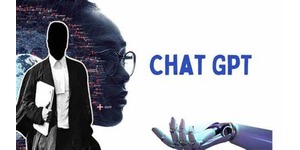
On January 30, 2024, a three-judge panel for the United States Court of Appeals for the Second Circuit referred Lawyer Jae S. Lee to the court’s grievance panel for engaging in conduct that fell “well below the basic obligations of counsel.” See Park v. Kim, 2nd Circuit, 22-02057 (2nd Cir. Jan. 30, 2024). The court found that Park’s lawyer, Jae S. Lee, admitted to citing a non-existent state court decision in her reply brief submitted to the Second Circuit. Said the court:
Counsel reports that she relied on a generative artificial intelligence tool, ChatGPT, to identify precedent that might support her arguments, and did not read or otherwise confirm the validity of the (non-existent) decision she cited. Because this conduct falls well below the basic obligations of counsel, we refer Attorney Lee to the Court’s Grievance Panel, and further ORDER Attorney Lee to furnish a copy of this decision to her client.
See Park v. Kim, 2nd Circuit, 22-02057 at 2 (2nd Cir. Jan. 30, 2024).
Lee is not the first lawyer to face sanctions for submitting fake cases to the court in motions or briefs. See Mata v. Avianca, Doc. No. 22-cv-1461 (S.D.N.Y. May 4, 2023). A New York court sanctioned lawyer Steven Schwartz for citing cases which did not exist in an opposition to a motion to dismiss. Similarly, a judge is considering whether to sanction Michael Cohen’s former lawyer for citing bogus cases in his request for early termination of Mr. Cohen’s supervised release. Prudent lawyers using ChatGPT, including those who have already fallen victim to ChatGPT’s deception, should review the materials published by several states providing guidance on competently utilizing artificial intelligence in their legal practice. See Practical Guidance for the Use of Generative Artificial Intelligence in the Practice of Law, The State Bar of California (2023); see also ( Florida Bar Ethics Opinion, Op. 24-1 (Jan. 19, 2024).
